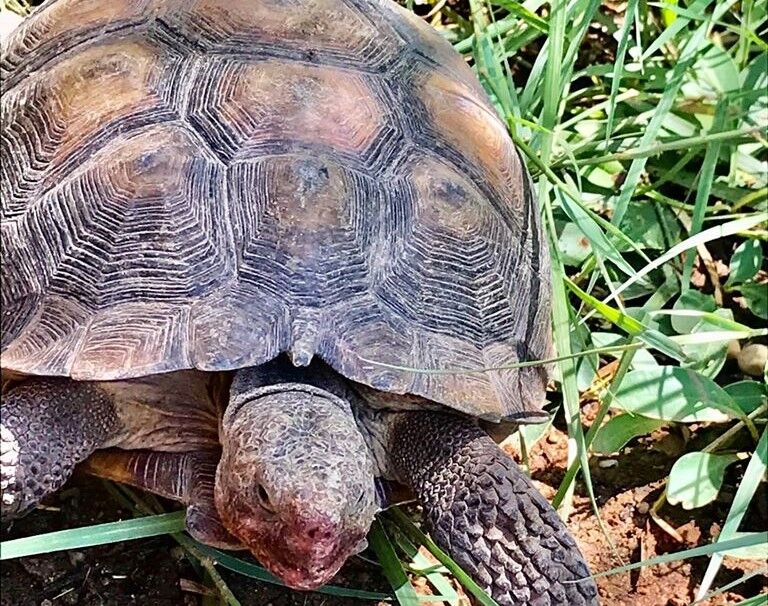To everyone who brought a new critter into your life during the pandemic, you're not alone.
The Tucson Botanical Gardens is with you.
This week, the gardens, 2150 N. Alvernon Way, welcomed a desert tortoise. The tortoise — about eight inches wide — will make her home in a 600-square-foot enclosure in the Native Crops Garden.
"It seemed like the moment we put her into the habitat, she wanted to go explore," says Robert Elias, the marketing director for the Tucson Botanical Gardens. "It was funny, we allow dogs into the gardens through the end of September, and one of the dogs actually jumped up on the side wall to get a look at the tortoise, and the tortoise saw this and started walking toward the dog ... She seems to be adventurous and friendly, and it's something that we're very excited about."
As for her name, the organization is asking for community input on its Facebook and Instagram pages. Leave your ideas in the comments. "Nora" seems to be a front-runner right now.
The Tucson Botanical Gardens got their newest resident through the Desert Tortoise Adoption Program, established by the Arizona-Sonora Desert Museum and sanctioned by the Arizona Game and Fish Department. The program helps find qualified homes for unwanted captive desert tortoises.
Elias says the tortoise the Tucson Botanical Gardens adopted came to the Arizona Game and Fish Department after a woman repeatedly found her at her front door even after taking her back into the desert several times. The Arizona-Sonora Desert Museum notes that while it is illegal to collect wild tortoises, it is common to find captive tortoises in Tucson.
And actually, if you do find a desert tortoise in a populated area, you should call the Tortoise Adoption Program at 844-896-5730 so they can help determine what to do with the tortoise. Releasing a captive tortoise back into the wild can spread disease among wild populations, according to the game and fish department. For all the tortoise questions you now probably have, visit the websites of the Arizona Game and Fish Department and Arizona-Sonora Desert Museum.
Adopting a tortoise is a long-term commitment, as desert tortoises can live up to 80 years or more, according to the desert museum.
Like all desert dwellers, the tortoise at the botanical gardens is most likely to be active in the morning, so plan your visit for earlier rather than later (The Tucson Botanical Gardens is open now). You can also expect her to hibernate when winter arrives.
To leave your name suggestions for the Tucson Botanical Gardens' new desert tortoise, visit the organization's Facebook or Instagram pages.





